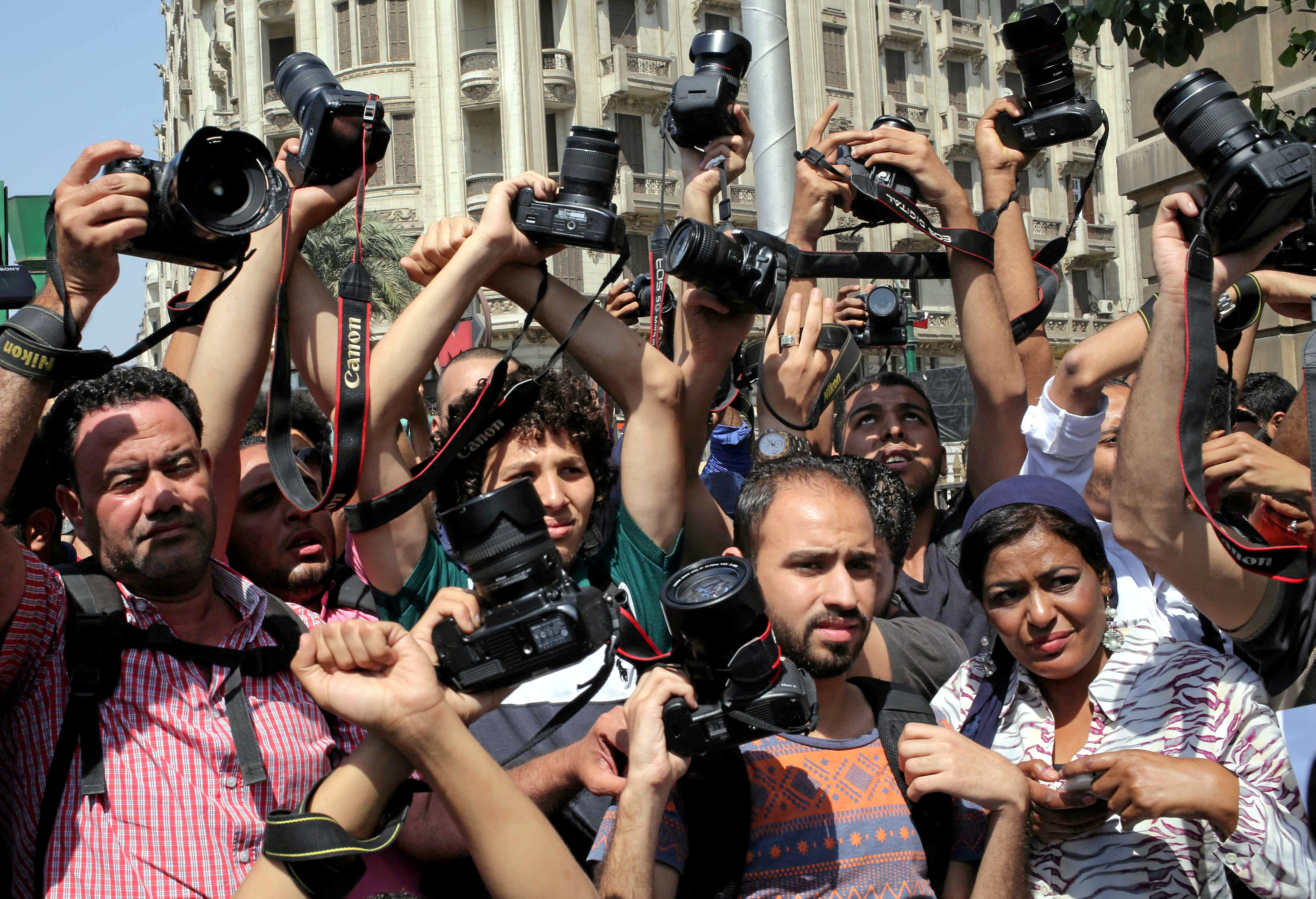
In response to the international media response over the investigation and arrest of Sami Anan, the Egyptian State Information Service (SIS) issued a press release on Thursday accusing foreign media outlets of “unprofessional” coverage of Egypt’s elections.
The SIS press release took a stab at the “sources,” the “facts,” and what it called the “treatment” of coverage.
In the press release, the SIS questioned the reliability and fairness of the sources used in coverage of Egypt’s presidential election, accusing sources of coming “from the same batch,” especially, they say, in regards to the case of Anan.
It also went on to state that foreign media coverage did not resort to official sources, in particular the National Elections Commission (NEC), the institution responsible for all relevant proceedings of the electoral process.
The SIS then accused the media of blatant disregard for relevant facts, the most significant of which is “the legal characterization of the status of recalled Lieutenant General Sami Anan in accordance with the laws and decisions regulating the affairs of the Armed Forces.”
It followed this with an explanation that due to the legal status of Lieutenant General Sami Anan, he was ineligible to vote or run as a presidential hopeful, according to the Law on the Exercise of Political Rights and the Law on the Regulation of the Presidential Elections.
The international media were then accused of using “incorrect terminology,” namely the word “detention” to describe the situation of Anan, saying “detention” has been non-existent in Egyptian legislation since being abolished by the Supreme Constitutional Court in 2011. The case of Anan, therefore, currently falls under criminal procedure law.
Finally, under the band “treatment,” the SIS said that due to the media using the case of Anan to “jump to conclusions” about how Egypt manages its elections, press coverage can be describes as “inaccurate,” and they deemed it more “opinion” than honest coverage.
The SIS press release also accused the media of “fabricating and exaggerating some incidents,” especially by linking the Anan case to other candidates’ cases. Here, without mentioning his name, it referred to Ahmed Shafiq, noting that he “himself issued a statement announcing the suspension of his candidacy, [after] considering himself not the best person to run the country in this period.”
The SIS also noted that other hopefuls had withdrawn at their own accord, with one potential nominee “not taking a single step towards candidacy,” and another raising the issue of the election timetable and “the National Election Authority’s withholding of delivery of his endorsement forms,” after which he announced the withdrawal of his bid, citing a “context drained of all its purposes.”
Shafiq, the former prime minister of Egypt and a presidential candidate in the 2012 election, withdrew from the 2018 presidential race despite initially making valiant intentions to run from the UAE.
Upon his return from the UAE, where he had been residing since 2012, Shafiq disappeared from the public scene temporarily, with his family and lawyer revealing they had no contact with him, only to reappear and withdraw his presidential bid. Shafiq explained that living in the UAE “may have kept me away from carefully following updates in the homeland, of progress and accomplishments.”
With Anan, several foreign media outlets reported on his arrest, including the BBC, CNN, CBS News, The Telegraph, and Al-Jazeera, with the latter having a sour relationship with Egypt.
The candidate who “has not taken any single step towards candidacy,” was a thinly-layered description of rights lawyer Khaled Ali, whose hopeful campaign ended abruptly after Anan was arrested.
Anan had announced his presidential bid on social media in January, before being arrested just days later. Anan was accused of “violating Egypt’s military code, running for the post without permission and forging documents.”
Current president Abdel Fattah al-Sisi came to the presidency following a popularly-backed military removal of the Muslim Brotherhood’s Mohamed Morsi. So far, he is the only official presidential candidate for the upcoming election, after submitting the required endorsement forms and undergoing medical exams.
Al-Wafd Party, which had endorsed Sisi for a second term just two weeks ago, has announced that its chairman Sayed al-Badawy will be standing against Sisi, but Badawy himself is yet to make the official announcement.


